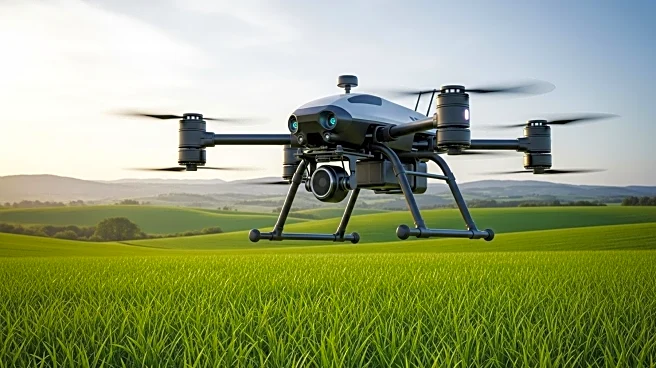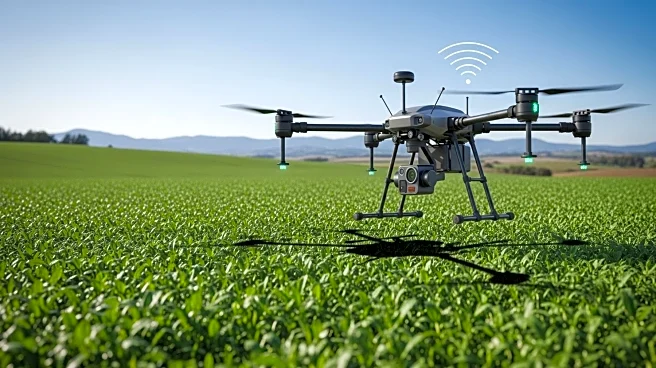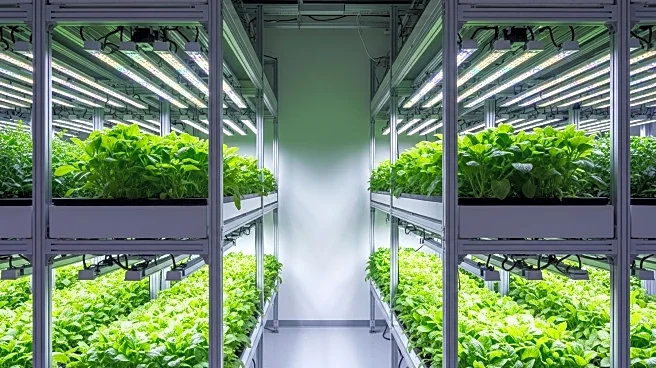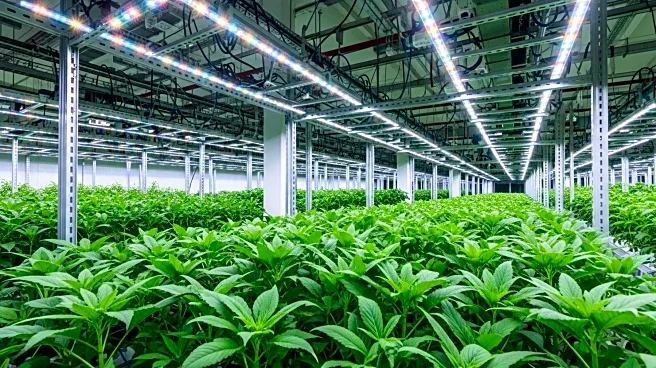What's Happening?
The AI in Agriculture Market in the United States is poised for significant growth, with projections indicating a rise from $2,567.54 million in 2024 to $15,901.36 million by 2032. This growth is driven by the adoption of artificial intelligence technologies aimed at enhancing productivity, efficiency, and sustainability in farming and agribusiness. Key players in this market include Microsoft, IBM, and Granular Inc. The market encompasses AI-driven solutions such as precision farming, crop monitoring, predictive analytics, automated machinery, and disease detection. Recent developments in the U.S. include the launch of an AI-powered crop monitoring system by a Midwest startup and a partnership between a leading university and agritech firms to deploy autonomous drones for precision pesticide application.
Why It's Important?
The expansion of AI in agriculture is crucial for addressing challenges such as resource optimization, yield improvement, and cost reduction in the agricultural sector. As the global population continues to grow, the demand for efficient and sustainable food production methods becomes increasingly important. The integration of AI technologies in agriculture can lead to more informed decision-making, reduced environmental impact, and enhanced food security. This growth also presents opportunities for tech companies and startups to innovate and capture market share in a rapidly evolving industry.
What's Next?
The AI in Agriculture Market is expected to continue its upward trajectory, with further advancements in AI technologies and increased adoption by farmers and agribusinesses. Stakeholders, including tech companies, agricultural firms, and policymakers, are likely to focus on developing and implementing AI solutions that address specific agricultural challenges. Additionally, there may be increased collaboration between technology providers and agricultural institutions to drive innovation and improve the scalability of AI applications in farming.
Beyond the Headlines
The rise of AI in agriculture also raises ethical and legal considerations, such as data privacy and the potential displacement of traditional farming jobs. As AI technologies become more prevalent, there will be a need for regulatory frameworks to ensure responsible use and address concerns related to data ownership and security. Furthermore, the cultural shift towards technology-driven agriculture may require education and training for farmers to effectively integrate AI solutions into their operations.












